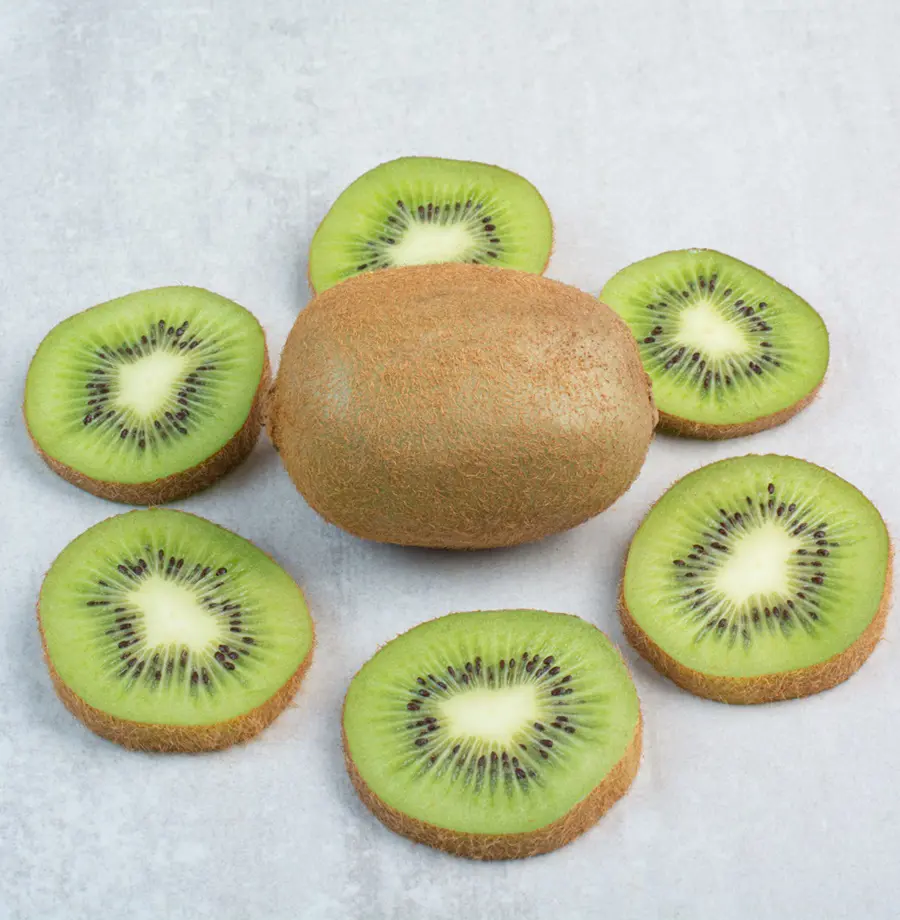15 Cold and Flu Home Remedies
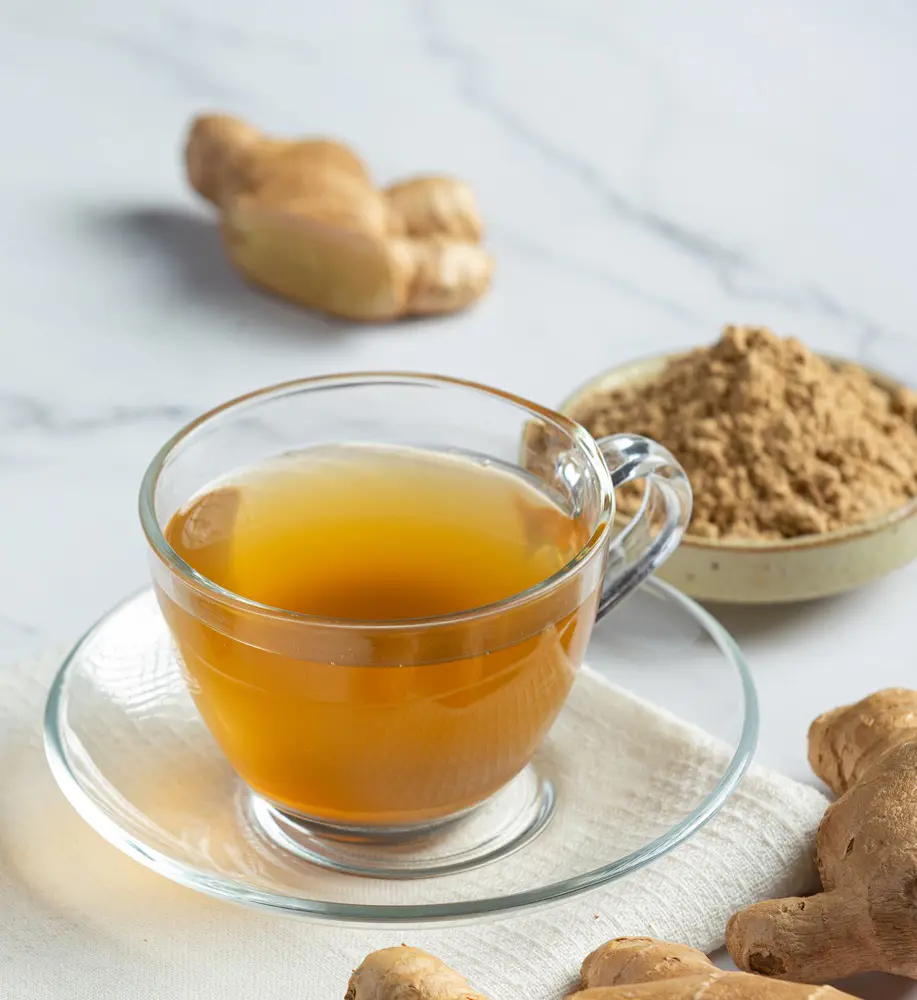
This post may contain affiliate links. If you make a purchase through links on our site, we may earn a commission.
Many home remedies for cold and flu have been passed down through generations. Cold and flu do not have a specific cure, and this makes these home remedies good for easing the symptoms and aiding the body’s natural healing processes.
Here, we present you the 15 most effective cold and flu remedies that help strengthen immunity during the cold and flu. These remedies are easy to obtain and have the highest capability of providing a soothing impact.
1. Saltwater Gargle

Gargling with salt water can reduce the occurrence of upper respiratory infections. It can minimize the signs of the common cold like sore throat and nasal congestion. Moreover, rinsing the throat with warm salty water can help clear out thick mucus that has bacterial and allergen deposits.
For the preparation, dissolve half a teaspoon of salt in eight ounces of warm water. You can gargle with salt water several times a day if you want to get better results. Making use of thick and sticky gargling made with honey and lemon also plays an important role as a sore throat remedy.
2. Saline Nasal Irrigation

If your nasal tract is facing congestion during a cold or flu, directly flushing the nasal passage with the saltwater solution is a very effective home remedy. Nasal irrigation helps irrigate and hydrate nasal passages so they aren't dry and cracked.
There are several products in the market that serve the common purpose of rinsing out particles or mucus from your nose. These products often use a saline or saltwater solution that is then squeezed or poured into one nostril while your head is tilted.
It's always important to use distilled, sterile, or previously boiled water and clean and dry your pot or device between uses.
3. Increase Humidity

Dry air contributes to the development of irritation in the throat and nose, thus aggravating the symptoms of colds or flu. As such, raising the humidity level is useful to alleviate dryness and inflammation of the skin within these regions. Using a humidifier or cool mist vaporizer in your bedroom helps in increasing humidity hence reducing several cold and flu signs like runny nose, dry cough, and nasal congestion.
Nevertheless, ensure that the water used in the humidifiers is changed with time to avoid the development of molds and other fungi.
4. Warm Baths

Taking a warm bath is one of the helpful home remedies that can be used to cope with some of these uncomfortable feelings. Warm baths can help moisten and unblock narrowed nasal passages due to the warmth and humidity of the bath.
Also, the steam that arises from the warm bath can be really helpful to those who have throat inflammation and sore muscles. This at times can contribute to the reduction of fever in children as much as it does in the case of adults.
The incorporation of Epsom salt and baking soda into water can act as a medium to help in relieving body pain.
5. Adjust Your Sleep Position

Catching some sleep with an additional pillow under your head will raise the head position that is necessary to clear the nasal passages from congestion. Elevating your head helps gravity assist in draining mucus from the sinuses.
Also, you may experience fewer coughing fits if you maintain this position as less mucus pooling in the throat reduces irritation and the urge to cough.
If using multiple pillows feels awkward, consider placing them between the mattress and box springs to create a gradual slope, which can be more comfortable while still providing elevation.
6. Hydration

Cold and flu cause discomfort like sweating, and congestion leading to an increase in the need for water consumption. Therefore, it is vital to compensate for the lost fluids by drinking a lot of fluids. Drinking a lot of fluids has many advantages such as avoiding dehydration and making the mucus thin; this makes clearing of the nasal passage and the sinuses easy.
Also, fluids aid in the elimination of dryness in the nose by supporting the lubrication of the mucus membranes. Warm fluids are the most appropriate as they make you feel so comfortable especially if you are having a cold.
7. Warm Compress

Applying a warm compress is a simple, yet effective technique in making you feel better and overcome the symptoms of cold and flu. The application of a warm compress helps ease the congestion by softening the mucus lining found in the sinuses.
Furthermore, the heat stimulates blood flow within the area making it easier to breathe and also assisting in reducing inflammation and drainage of the affected tissue. Moreover, the warmth in a compress helps relieve sore muscles, and cold and flu tension thus providing a sense of comfort and relaxation in the body.
8. Boost Your Immune System

Strengthening immunity helps reduce and cure the symptoms associated with flu and colds and improves general health. Techniques including sleeping at least 7 hours at night, eating a balanced and nutritious diet, performing physical exercise, and following proper flu vaccination measures can help improve a person’s immunity.
A body with a stronger immune system is poised to produce those antibodies that help detect and neutralize the cold and flu inducers, viruses, and bacteria. Furthermore, people with a normal immune system response may present less severe symptoms and shorter disease length. Scientists have suggested that optimization of the immune system by proper diet, rest, and exercise allows for faster recovery from infections.
9. Vitamin C

Vitamin C acts as a strong antioxidant and has a very positive impact on the details of an individual's immune system. It is suggested that sufficient intake of vitamin C can prevent common colds from developing into dangerous conditions such as pneumonia and lung infections.
There is a slight defensive effect of vitamin C hence can help to minimize the symptoms of a cold. As shown by some studies, taking vitamin C daily reduces the duration of a cold by roughly 8% in adults and 14% for children if taken in advance of the onset of the symptoms.
10. Turmeric Milk

Turmeric milk, commonly called golden milk, is one of the oldest remedies for colds and flu that originates from India. Turmeric contains curcumin, which can alleviate inflammation in the respiratory tract which gets aggravated during a cold or flu. This assists in decreasing symptoms such as sore throat, and congestion.
Furthermore, it strengthens the immune system, provides more relief, and frees one from coughing and irritation. The warm feeling associated with the milk blended with turmeric serves as an instant relief making it easier to find some rest.
11. Honey
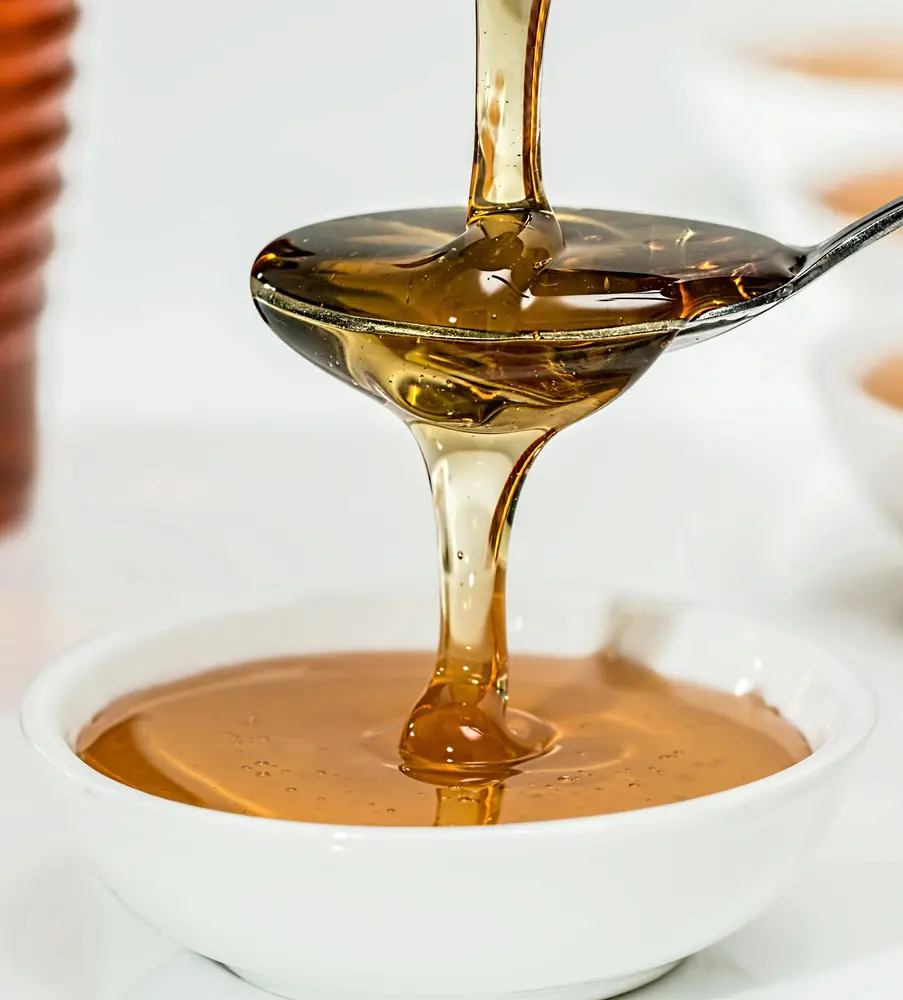
Honey is a commonly used natural medicine that can be effectively used for the treatment of cold and flu. It is useful in fighting off the respiratory pathogens. In addition to the thickness of honey, the texture is effective in coating the throat thus relieving soreness or irritation.
Honey has some flavonoid and phenolic compounds that diminish the inflammation in the respiratory system hence giving comfort to congestion and throat soreness. You can prepare various cold and flu remedies from honey. For consumption purposes, one can dissolve one tablespoon of honey in warm water or warm herbal tea. Otherwise, you can try lozenges with honey as an ingredient.
12. Chicken Soup

Chicken soup is one of the best foods to eat when you have a cold. Drinking chicken soup along with other clear soups and broths is good for the immune system, and provides hydration and important vitamins/minerals.
The chicken itself contains amino acids like cysteine which help thin mucus and reduce congestion in the respiratory tract.
Moreover, carnosine found in chicken helps to lessen inflammation within the body making it easier to treat symptoms of colds and flu. Research showed that chicken soup may also prevent the mobility of neutrophils, the infection combating the white blood cells that can work optimally for removing the illness of the body when in slow mode.
13. Herbal Remedy
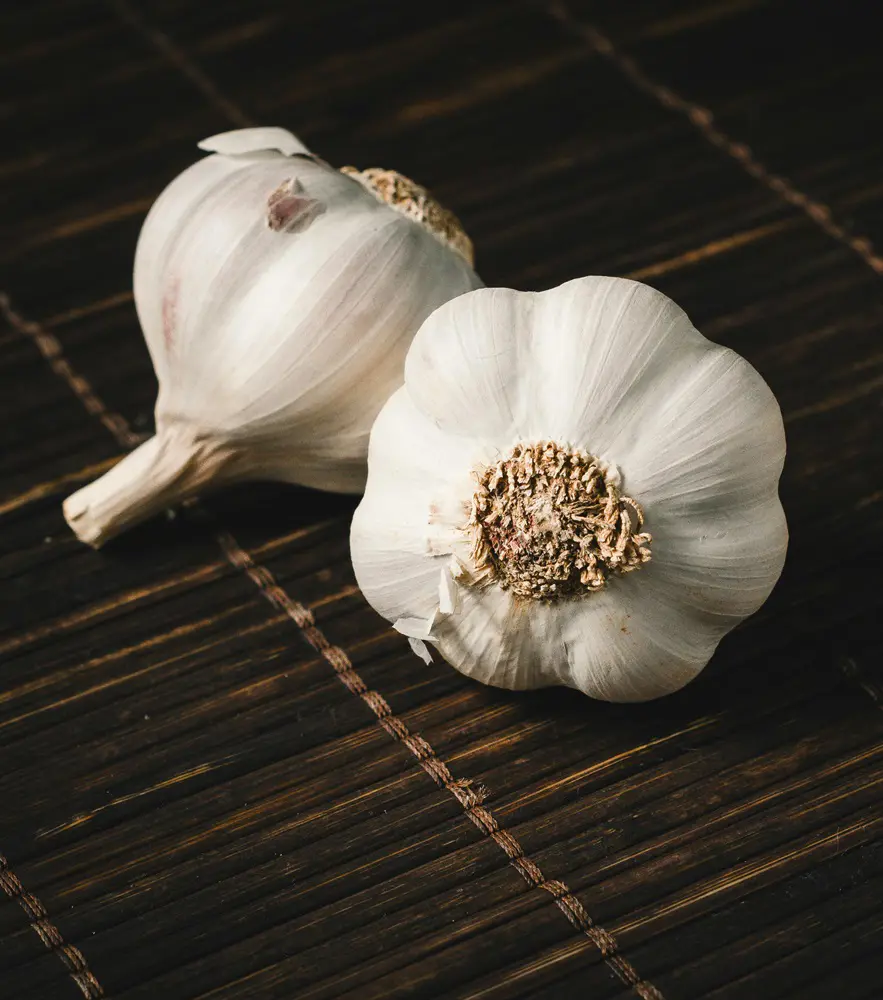
Herbal medicines have been known to be effective in providing symptomatic relief and boosting the body’s natural remedial mechanisms. For cold and flu, the following are useful herbs:
- Echinacea: Echinacea is a herb that people may use in teas, lozenges, and OTC supplements. Its ingredients consist of flavonoids, chemicals that enhance immunization and bring down inflammation. A survey conducted in 2020 proposes that the use of this herb can help treat colds in children.
- Elderberry: Elderberries especially from the black elder tree are popular for their ability to help cure cold and flu. Research revealed that elderberry extract could lessen the flu’s resolve time to about four days from a placebo.
- Garlic: Garlic has allicin, which has proven to have some antimicrobial and antiviral attributes. Thus, with proper intake of garlic, the intensity of cold symptoms could be reduced due to the stimulation of the immune response.
- Ginger: There are numerous health benefits of ginger. It has some medicinal value and can help with a sore throat due to the inflammation-reducing characteristics. Similarly, it has now emerged that ginger also has antibacterial properties that could keep cold viruses at bay.
14. Essential Oils

Essential oils such as eucalyptus, rosemary, and peppermint may reduce signs of a cough or cold through the reduction of inflammation, controlling bacterial growth, and providing throat comfort. These oils are famous for their ability to remove blockages in the nasal passage. Inhaling these oils also aids in relieving sinus headaches. Likewise, oils like lavender have calming effects that help in improving sleep quality. Rest is essential to get over colds and flu.
If you wish to use them, consider adding a few drops to a diffuser. Moreover, using a carrier oil to dilute essential oils makes the application on the chest or back possible for respiratory issues. In addition, you can put a few drops of the above-mentioned essential oils in hot water for steam inhalation.
15. Topical Ointments
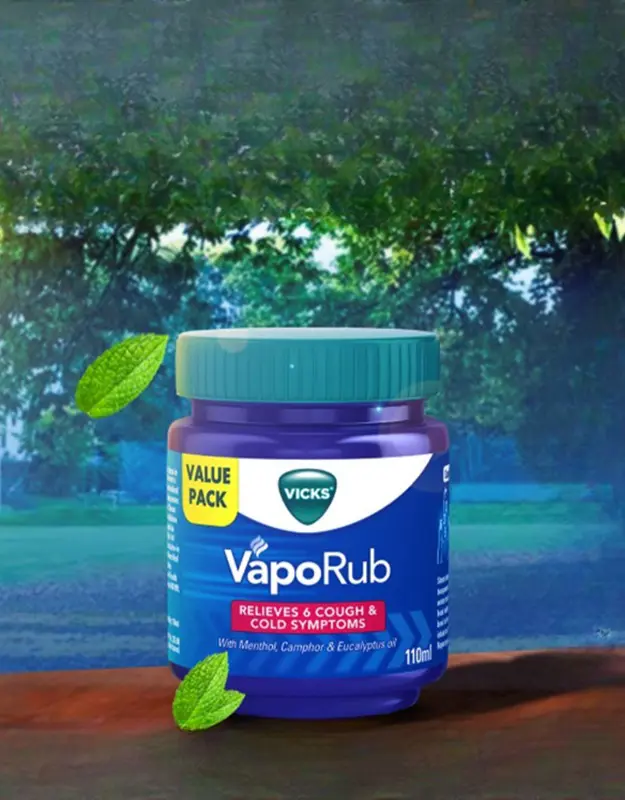
Topical ointments containing camphor, eucalyptus oil, and menthol are ideal for specific uses such as colds and flu to give symptomatic relief. The above-mentioned ingredients when used externally aid in clearing blocked nasal passages, improving breathing. Besides, it relieves the feeling of irritation and discomfort associated with cold and flu.
You can use these ointments thrice every 24 hours. However, VapoRub is not considered suitable for children under 2 years.
Recent posts
Lifestyle
Lifestyle
How To Cut and Eat Grapefruit? Most Delicious Ways
Juicy and wonderfully nutritious but with the hassle of preparation, these are what grapefruits are perceived as! The effort it seems to take to enjoy this fruit makes us even walk past it at the store. But, we got you here, with smart cutting techni...
Lifestyle
How To Eat A Kiwi? Tips on Peeling, Cutting and Recipes
Kiwis, with their green skin and juicy acidic pulp, are not only tasty but also contain many nutrients. However, preparing this fuzzy fruit might raise many questions for individuals concerning the best ways to prepare it. In this guide, we w...
Lifestyle
20 Best Ways To Eat Avocado
Avocados are everywhere these days. Not only fashionable; they are beneficial fruits as well because of their rich nutrient content. Besides that, they hold a creamy texture and elegant taste that you can enjoy in many different ways. Yes, that is co...
Lifestyle
How To Eat Beets In Best Possible Ways
Beets are superfoods but not all people like them. Including beets can make any dish look magnificent but what stops getting them that spotlight is their taste. However, it would be surprising for you to know that there are many cooking methods where...
Lifestyle
What Not To Eat When Pregnant? 18 Foods To Avoid
Pregnancy is a blissful journey, but it also comes with specific dietary restrictions. As your body undergoes significant changes to support the growth of your baby, it's important to make informed choices about what you eat. What not to eat when pre...
Lifestyle
16 Home Remedies To Mosquito Bite Relief
Mosquito bites can turn a pleasant outdoor experience into an itchy nightmare. These pesky insects leave behind red, swollen bumps that can be incredibly irritating. The constant urge to scratch can lead to further inflammation and even infection. An...

